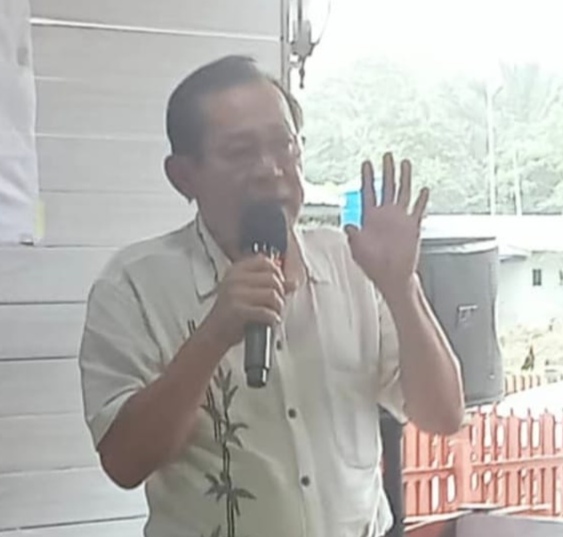By IGNATIUS MATAYUN, Ombudsman Outreach PARTI WARISAN Kota Kinabalu
KOTA KINABALU — The Warisan Ombudsman Outreach today refuted claims made by former assemblyman J. Ligunjang in his recent article titled “Vote for GRS to safeguard our future, our hope, and our Sabah”, describing it as an emotional and romanticised attempt to mask the administration’s failure to address Sabah’s real economic and governance issues.
Warisan Ombudsman Outreach representative Ignatius Matayun said that while the article was written with flowery language about “hope”, “unity” and “stability”, it offered no factual basis to support its grand claims of progress under the Hajiji-led GRS government.
“It is ironic that those who have been in power for five years now still rely on poetic slogans instead of transparent data.
Sabahans deserve evidence of real change — not recycled promises dressed in sentimental words,” said Ignatius.
1. “Unprecedented Revenue” but Unprecedented Poverty
Matayun said the claim that Sabah’s revenue had reached “unprecedented heights” is misleading.
He pointed out that the increase was mainly due to temporary high global commodity prices, not any structural reform by the state government.
“If revenues are truly at record levels, why are our schools still collapsing, hospitals overcrowded, and rural roads impassable? Where has the money gone?”
“Revenue growth without equitable distribution is not progress — it is illusion,” he added.
Matayun said much of the development allocation did not even enter Sabah’s State Consolidated Fund, and that only around 60% of total allocations are actually spent, with the rest reverting to the Federal Treasury — a clear sign of inefficiency and lack of capacity.
2. Stability or Stagnation?
The article portrays Hajiji as a symbol of “stability”.
Ignatius argued that the only stability under GRS is political stagnation and elite consolidation.
“Sabah has witnessed two major political realignments since 2020, frequent party hopping, and a government that survives through federal patronage. That is not stability — it is dependency,” he stressed.
He said true stability is built on good governance, transparency, and accountability, not on fear or control.
3. The Empty Rhetoric of “Love for Sabah”
Matayun said it is manipulative to equate voting for GRS with “love for Sabah”.
“Loving Sabah means demanding better governance, defending our rights under MA63, and ensuring that every ringgit of revenue benefits the rakyat. Blind loyalty to a government that fails to deliver is not love — it’s surrender,” he said.
4. The MA63 Contradiction
Addressing Ligunjang’s claim that GRS’s alliance with PH ensures MA63 rights are upheld, Matayun said the facts show the opposite.
“If our rights are respected, then why is the Federal Government appealing the court’s decision in favour of Sabah’s 40% revenue entitlement?”
“GRS has remained silent, choosing political convenience over constitutional duty. Warisan’s position is clear — we will not compromise Sabah’s constitutional rights for the sake of political alignment,” he stated.
5. Sabah’s Harmony Exists Despite GRS, Not Because of It
Matayun also rejected the attempt to credit GRS for Sabah’s racial and religious harmony, saying that Sabahans have always lived in peace long before GRS existed.
“Our multicultural unity is Sabah’s soul, not GRS’s achievement. In fact, it is now being politicised to mask their failure in governance,” he said.
6. GRS is No GPS
Matayun dismissed Ligunjang’s comparison between GRS and Sarawak’s GPS as “absurd”.
“GPS asserts Sarawak’s autonomy, manages its own oil and gas, and defends its rights even against federal pressure. GRS, on the other hand, is entirely dependent on Putrajaya’s goodwill,” he said.
He added that the most fundamental difference is that GPS does not include any West Malaysia–based parties in its coalition.
“GRS is not a Sabah coalition in the true sense. It includes PKR, DAP, and even PAS — all West Malaysia–based parties with their own national agendas. How can GRS claim to be fighting for Sabah’s autonomy while sharing power with those very parties that represent federal interests?”
“That alone exposes the contradiction in the GRS narrative,” he added.
7. The Cult of Personality
Matayun also cautioned against the narrative portraying Hajiji as “protector” or “saviour” of Sabah.
“Sabah doesn’t need a protector. We need institutions that protect the people from abuse, corruption, and inequality. Leaders come and go — but institutions must endure,” he said.
8. The Real Call – Sekamatkan Sabah
Ignatius concluded that the Warisan movement’s rallying call “Sekamatkan Sabah” stands as a stark contrast to GRS’s hollow slogans like “Sabah for Sabahans” or “Rumah Kita, Kita Jaga.”
“Warisan’s message is not sentimental — it is existential. We must rescue Sabah from chronic dependency, corruption, and the betrayal of its rights. That is what ‘Sekamatkan Sabah’ truly means,” he said.


